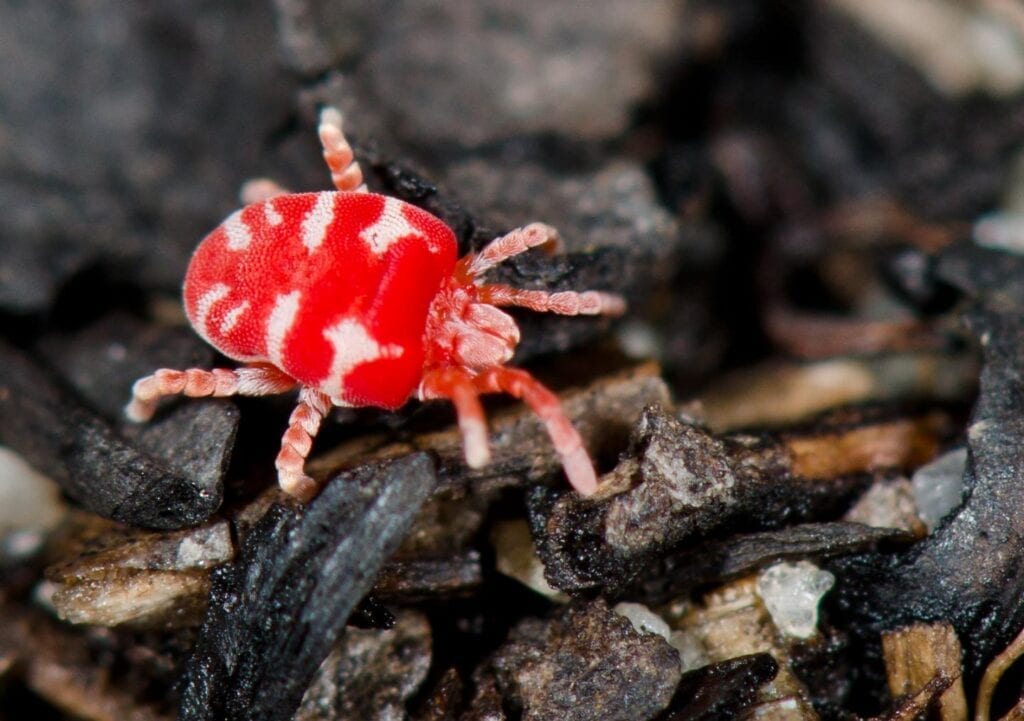
Mite extinctions are occurring at least 1,000 times the ‘natural’ rate – a finding a University of Queensland researcher says is another warning that global biodiversity is in deep trouble.
The 1.25 million mite species around the planet occupy an enormous variety of terrestrial and freshwater ecosystems, from the equator, to polar regions and high altitude areas.
In the first global study on mite biodiversity, UQ’s Dr Greg Sullivan and colleague Dr Sebahat K. Ozman-Sullivan compiled data that showed the ongoing extinction of an alarming number of species.
“Mites are critical to ecosystems all over the planet – some provide essential ecosystem services such as the incorporation of organic matter into the soil,” Dr Sullivan said.
“These services underpin the survival of innumerable species, and act as a proxy for environmental health.
“However, the humble mite is in trouble, as the majority of mite species are assumed to be in the tropical rainforests, where 50 per cent have been destroyed or severely degraded,” he said.
“And based on estimates of overall biodiversity loss, around 15 per cent of mite species were likely to have become extinct by 2000.
“Losses are currently expected to increase by between 0.6 per cent and six per cent by 2060.”
The researchers said humans are responsible for the erosion of mite diversity.
“Habitat destruction and degradation continue on an enormous scale, with increasing global population and resource consumption the overarching drivers of extinction,” Dr Sullivan said.
“The maintenance of mite biodiversity is highly dependent on the maintenance of plant diversity, habitat complexity and insect diversity.
“This means we urgently need to minimise the rate of destruction and degradation of habitat, especially in subtropical and tropical regions, and protect representative natural areas, especially the global biodiversity hotspots, like the Forests of East Australia biodiversity hotspot.”
In addition, he said climate change was likely worsening the effects of the other drivers at an increasing rate.
“We need a rapid global implementation of technologies that decrease greenhouse gas emissions and increase carbon sequestration, including the widespread regeneration of degraded forests with local species.
“This, coupled with an effectively executed international climate agreement, will play a critical role in determining the fate of a substantial proportion of the remaining global biodiversity – including the small, but mighty, mite.”
The Latest Updates from Bing News & Google News
Go deeper with Bing News on:
Global biodiversity
- Forest conservation project in Germany sells first biodiversity credits
Last year, Stockholm-based Swedbank acquired 91 biodiversity credits generated through a forestry project in central Sweden, marking the first transaction of its kind in Europe.
- Plans to monitor biodiversity deal risk rights of indigenous peoples
Proposals on how a global agreement on biodiversity will be monitored risk undermining the rights of indigenous peoples, Amnesty International said. Current plans regarding how to measure progress tow ...
- Beyond 30×30: Global Ocean Conservation Quality Is Lagging Behind Quantity
The international community’s commitment to protect at least 30 percent of our ocean by 2030—a goal known as “30×30”—is both inspiring and challenging; but this effort must go beyond mere numbers and ...
- Report: Governments are falling short on promises of effective biodiversity protection
A new analysis of the world's largest 100 marine protected areas (MPAs) published in Conservation Letters suggests that governments are falling short on delivering the promise of effective ...
- Exclusive: Biodiversity startup Dendra Systems has secured a $15.7 million Series B
Dendra Systems has developed an AI-enabled platform to help restore natural ecosystems.
Go deeper with Google Headlines on:
Global biodiversity
[google_news title=”” keyword=”global biodiversity” num_posts=”5″ blurb_length=”0″ show_thumb=”left”]
Go deeper with Bing News on:
Mite extinctions
- The Great Honeybee Fallacy
But everything about the modern American honeybee has been shaped by humans, including its sustained existence.A true truth about the bees: The modal American honeybee is, essentially, a farm ...
- Tomb with a view
Until recently, scientists didn’t think our amber held any insects. Now, they’ve found more than 200 specimens—immaculately preserved, and each telling a story about our prehistoric past.
- BU Beekeeping Club seeks new hive location
The Boston University Beekeeping Club is facing challenges securing approval for a new hive location on campus after a majority of their bees died from harsh weather conditions.
- 7 proven tips for reducing dust mites in your mattress, pillows and bed sheets
Dust mites and their droppings can impact both your health and your sleep, especially if you have allergies. Which is why knowing how to remove dust mites from your mattress, pillows and bed ...
- Books: Mites
For those who cannot or will not attend such freak shows, Authors Bodin & Hershey have written a book that answers all conceivable questions about these monstrous mites. Midgets are correctly ...
Go deeper with Google Headlines on:
Mite extinctions
[google_news title=”” keyword=”mite extinctions” num_posts=”5″ blurb_length=”0″ show_thumb=”left”]










